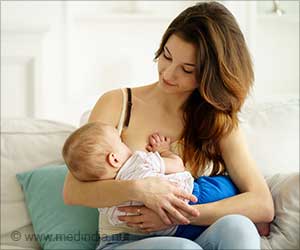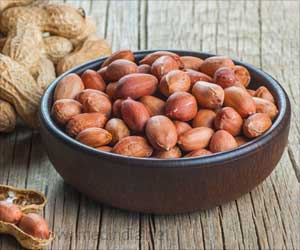“This research is the first to detect SARS-CoV-2 antibodies in stool samples from infants of vaccinated mothers,” says lead author Vignesh Narayanaswamy, a Ph.D. candidate in the breastmilk research lab of senior author Kathleen Arcaro, professor of environmental toxicology in the Department of Veterinary and Animal Sciences.
Thirty lactating women from across the U.S. – most of the healthcare workers – were enrolled in the study. They received the COVID-19 mRNA vaccine between January and April 2021.
The women provided breast milk samples before they were vaccinated, across two to three weeks after their first vaccine dose and across three weeks after the second dose.
They also gave samples of their blood, spotted on cards, 19 days after the first dose and 21 days after the second dose.
Infant stool samples were collected 21 days after the mothers’ second vaccination. Pre-pandemic samples of breast milk, dried blood spots, and infant stools were used as controls for the study.
The samples were tested for the receptor-binding domain (RBD)-specific immunoglobulin (Ig)A and IgG antibodies. In the breast milk samples, anti-RBD IgG antibodies were found to neutralize the protein spike of SARS-CoV-2, as well as four variants.
A significant increase in cytokine levels also revealed the immune response in breast milk samples. Anti-RBD IgG and anti-RBD IgA antibodies were detected in 33% and 30% of infant stool samples, respectively.
The levels of antibodies correlated with the vaccine side effects the mother experienced.
While lactating and pregnant women were urged to be vaccinated, no pregnant or breastfeeding women were included in the vaccine trials.
Source: Medindia



